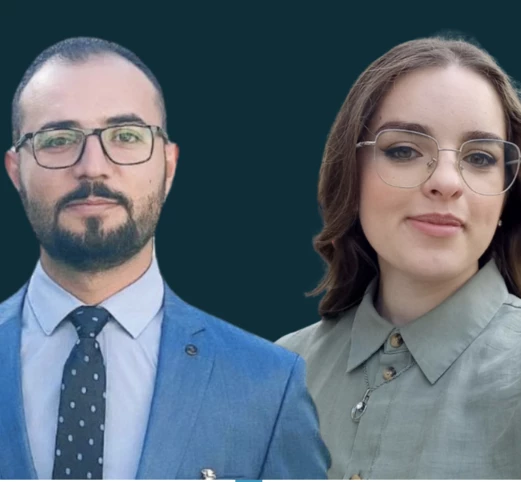Over 473 million children currently live in areas affected by conflict. More than 52 million of these children are estimated to be out of school. From Ukraine to the Democratic Republic of Congo, children in conflict zones are having their right to an education ripped away from them, forced to choose between learning and survival. In this blog, our Ambassadors Hasan Azeez, Executive Director and Co-Founder of Alef Initiative, and Kateryna Solodka, Digital Literacy Coach, explore how education has been impacted in Iraq and Ukraine, and how their initiatives are helping those most affected.
Centuries of conflict
“Growing up in Iraq, I witnessed firsthand how conflict and instability devastated access to education, leaving millions of children without learning opportunities.”
Hasan Azeez is the Executive Director and Co-Founder of Alef Initiative, an organisation that provides free, high-quality education to the most vulnerable children in Iraq, especially those displaced by conflict and living in marginalised communities. “Our mission,” Hasan explains, “is not only to teach but also to empower young people, integrate technology, and promote social cohesion through education.”
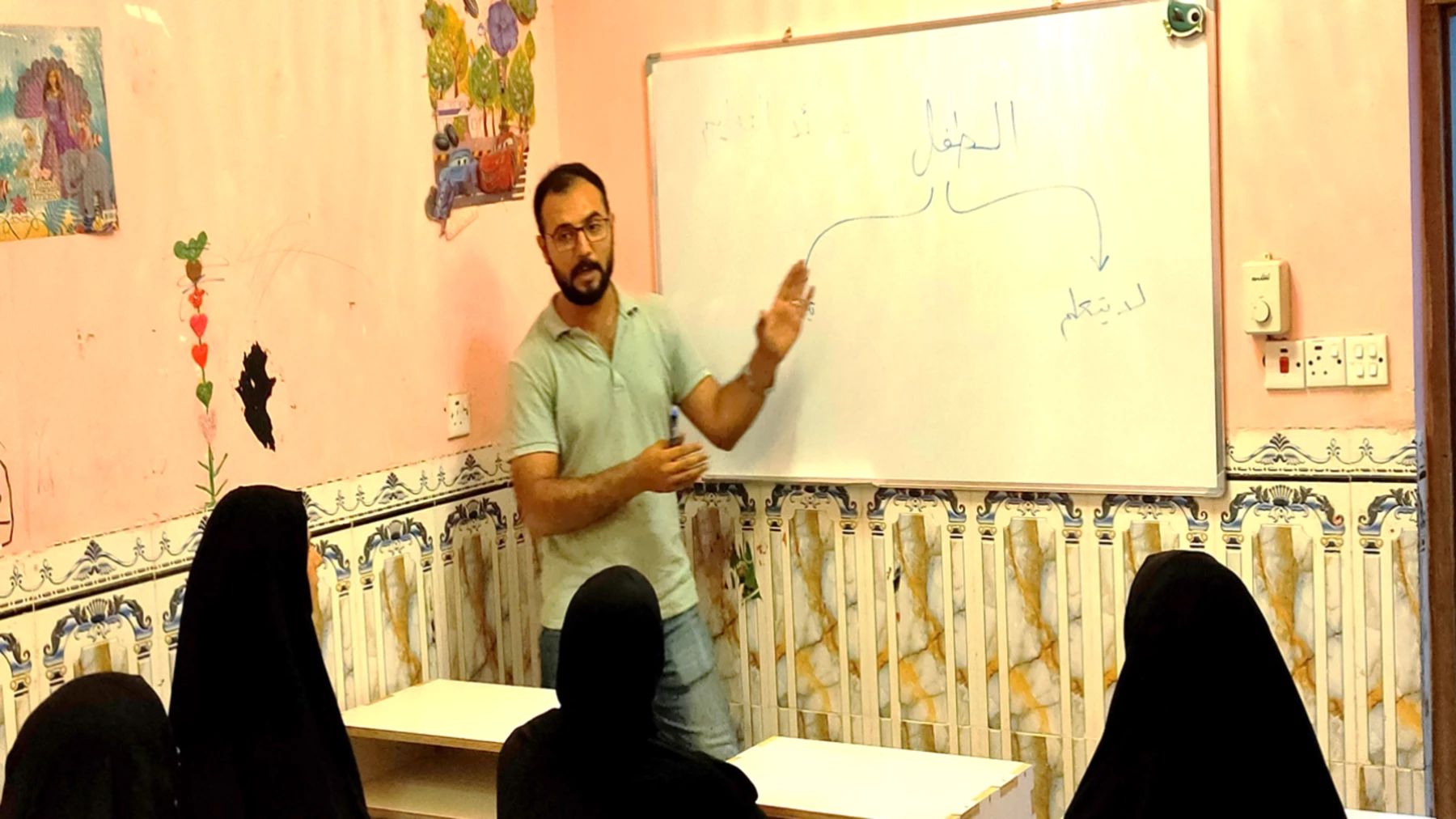
Iraq, once known as a ‘cradle of learning’, has suffered decades of conflict that has severely damaged its education system, and left behind a country of political instability and ongoing violence.
No safe space to learn
“The conflict has destroyed school infrastructure, displaced millions of children, and created a severe shortage of qualified teachers. Displacement camps lack proper schools, and in conflict zones, fear of violence keeps children away from classrooms,” Hasan says.
The conflicts in Iraq caused insurmountable destruction to schools. A survey conducted by Iraq's Ministry of Education found that between June and August 2003, 80% of schools were either moderately or severely damaged. Despite working to rebuild these schools through projects such as the 1,000-school project under the China-Iraq agreement, schools remain overcrowded, at times only being able to offer children four hours of education a day.
At Alef Initiative, Hasan has established nine educational centres across Iraq, providing education to 9,780 children. “Alef Initiative provides safe learning spaces and free, high-quality education to any child that needs it, because every child, regardless of their background, deserves a chance to learn.” According to the Iraq Ministry of Education, an additional 10,000 schools are needed to address the infrastructure shortage and ensure all children have a place to learn.
Education in an ongoing conflict zone
Three years ago, in February 2022, Russia invaded Ukraine, where they still occupy 20% of the country. As of December 2024, 3,665,000 people in Ukraine are internally displaced, and since the war began over 3,790 educational facilities have been damaged or destroyed.
“Due to the constant threat of shelling, especially in the frontline areas, children are unable to attend school in person,” explains Kateryna Solodka. “Since many families from the frontline areas were forced to move, schools in Ukraine are overwhelmed. Students alternate weeks of online and in-person classes, as shelters cannot accommodate all students at once, which certainly creates educational losses.”
A life dedicated to education
Kateryna is a Customer Service Assistant at Burlington Public Library and a Digital Literacy Coach at an English as a second language (ESL) school in Ontario, Canada. She has been working in education since her undergraduate degree where she quickly realised the importance of schooling children.
“Education is essential for understanding how the world around you works,” Kateryna notes, “politics, technologies, and culture concern every one of us, and education is the bridge that connects us to the latest discoveries and pathways to solve our everyday issues, see the bigger picture, and be able to actively participate in the processes that affect us.”
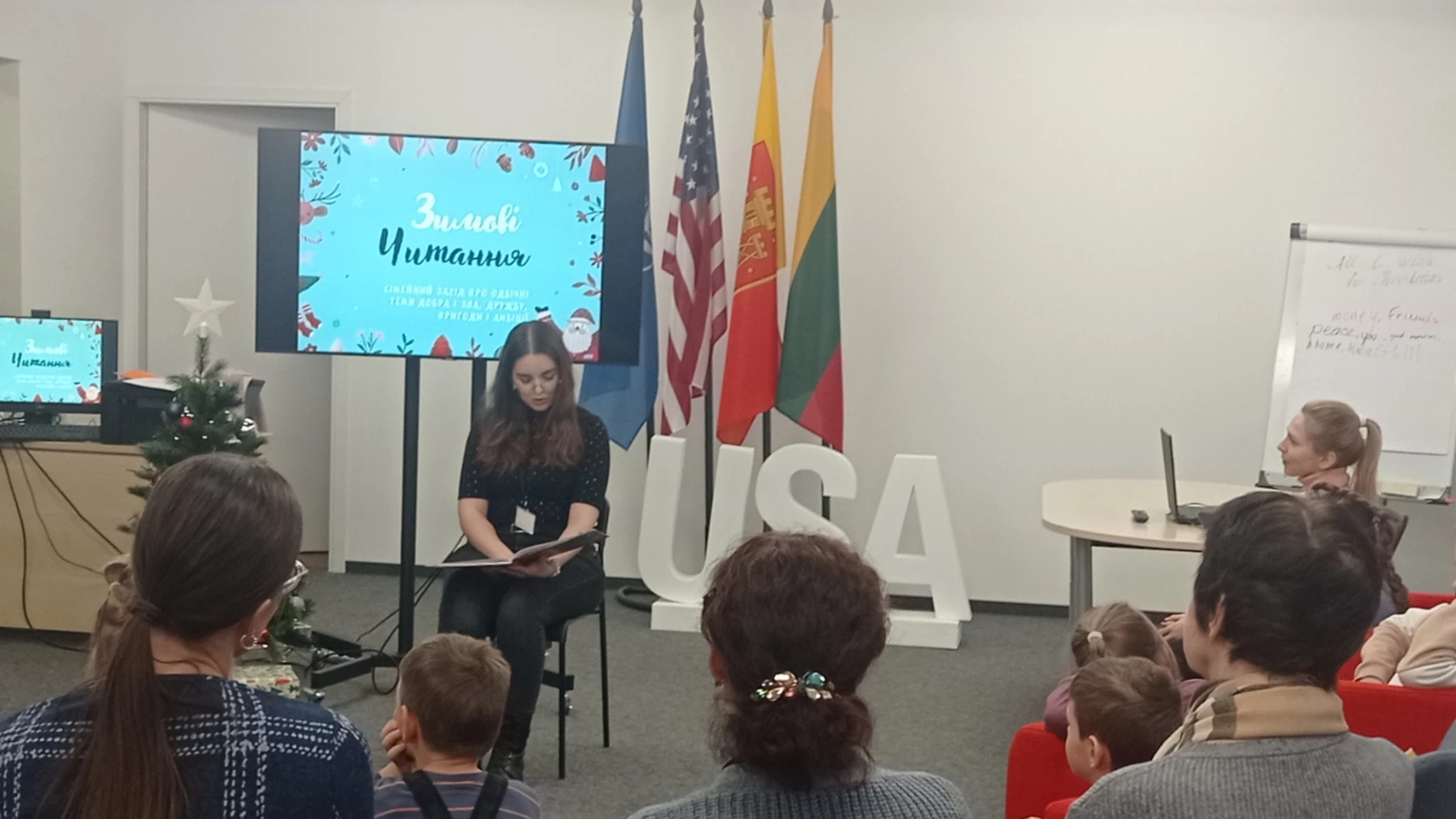
Kateryna worked as a tutor at an ESL school in Ukraine until she was forced to flee, along with 6.8 million Ukrainians, to a safer country. But even in the wake of escaping her war-torn country, her passion for education continued. “In Lithuania, I delivered non-formal educational events for youth and adults as a part of my European Solidarity Corps project. I worked with the local community as well as Ukrainian refugees in the city of Klaipeda, facilitating their integration into Lithuanian society. It brought me tremendous joy to be able to raise topics of human rights, innovation, entrepreneurship, and mental health to the public.”
Unreliable electronic solutions to the education crisis
Often, the solution to being unable to physically attend school in conflict zones is to take classes online. However, this is not always a viable option. In areas of conflict, network connections are frequently disrupted due to physical infrastructure damage, government shutdowns, and power outages.
“Due to the ongoing full-scale Russian invasion, the Ministry of Education is unable to print all the textbooks to meet educational needs,” Kateryna explains, “leaving the teachers and students reliant on electronic copies which sometimes cannot be accessed at times of power outages.”
In Iraq, 78% of the population has access to the internet, however, internet speed remains slow and authorities in the country frequently shut off the internet, making it difficult for children to access online learning tools.
“Iraq’s education system must undergo major reform to meet the demands of the modern world. This includes investment in technology, teacher training, and stronger policies to ensure education is a right, not a privilege,” states Hasan.
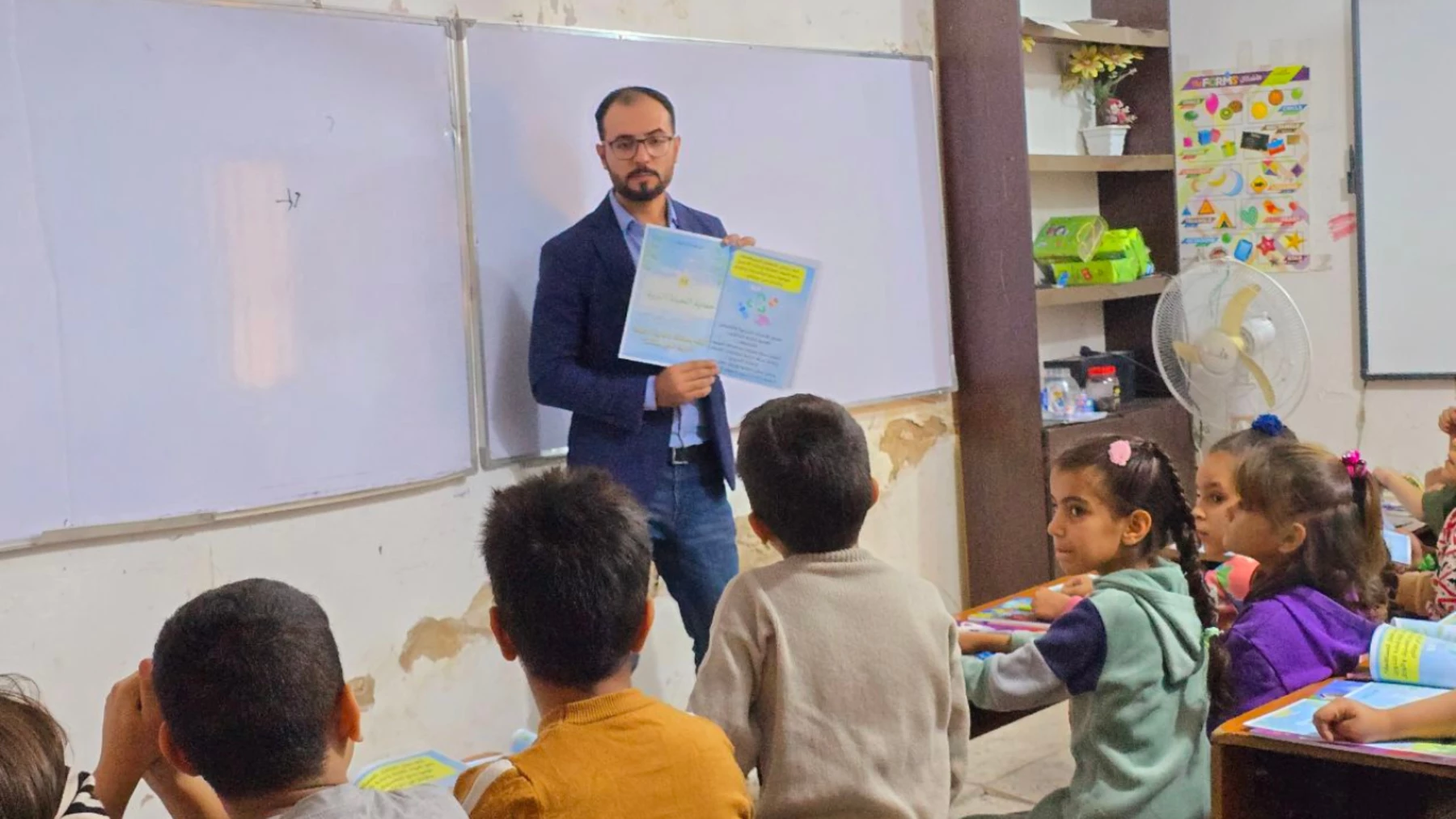
Mental health impact
Alongside the physical aspects of being unable to access education in conflict areas, the mental health implications of living in a conflict zone can have drastic impacts on children’s education.
“Students in Ukraine are facing many emotional and mental health challenges that prevent them from absorbing new information to the fullest. It is common for children who have lost family members to war, or who have been separated from their loved ones or friends, to have to skip a significant portion of schooling,” says Kateryna. “More psychology and inclusion specialists are desperately needed. There is a need for narrowly focused specialists who work with trauma, burnout, anxiety, and stress reduction, as well as rehabilitation for children.”
Through the Alef Initiative, Hasan integrates mental health support into his education programmes, providing young people with the resources they need to work through their trauma.
“One of the many success stories that highlight the impact of Alef Initiative is the journey of Layla, a 16-year-old orphan and a young divorcee who joined our educational centre in 2017,” explains Hasan. “At that time, she had been forced to drop out of school due to her challenging circumstances. With no support system and limited opportunities, her future seemed uncertain. However, through Alef’s free educational programmes, mentorship, and continuous support, Layla was able to return to her studies and regain hope for a better future. Today, she is in her third year at the College of Dentistry. Layla’s story is just one of hundreds of lives we have transformed, offering children and youth a second chance at education and a pathway to success. By providing quality education, psychological support, and career guidance, Alef Initiative has helped thousands of young Iraqis build brighter futures despite the hardships they face.”
The future of education in conflict zones
As of June 2024, there were 56 active global conflicts and 52 million children out of school. If we are to achieve SDG 4, to ensure inclusive and equitable quality education and promote lifelong learning opportunities for all by 2030, we need to ensure that children everywhere, including those in conflict zones, have access to quality education.
“If we prioritise inclusivity, innovation, and sustainable funding, we can rebuild Iraq’s education system and empower the next generation to lead the country towards peace and prosperity,” says Hasan.
In Ukraine, where conflict persists, Kateryna is optimistic about the country's ability to continue educating its children. “Adapting to the challenges of the time, switching to remote learning, innovations, and new approaches is an undeniable achievement of Ukrainian education. It has been successfully operating remotely for more than three years, and remote schools have been set up for Ukrainian children who have moved abroad to access the Ukrainian education system. As long as we stay together, stay strong, and help each other, we will improve and recover from any setbacks,” she concludes.
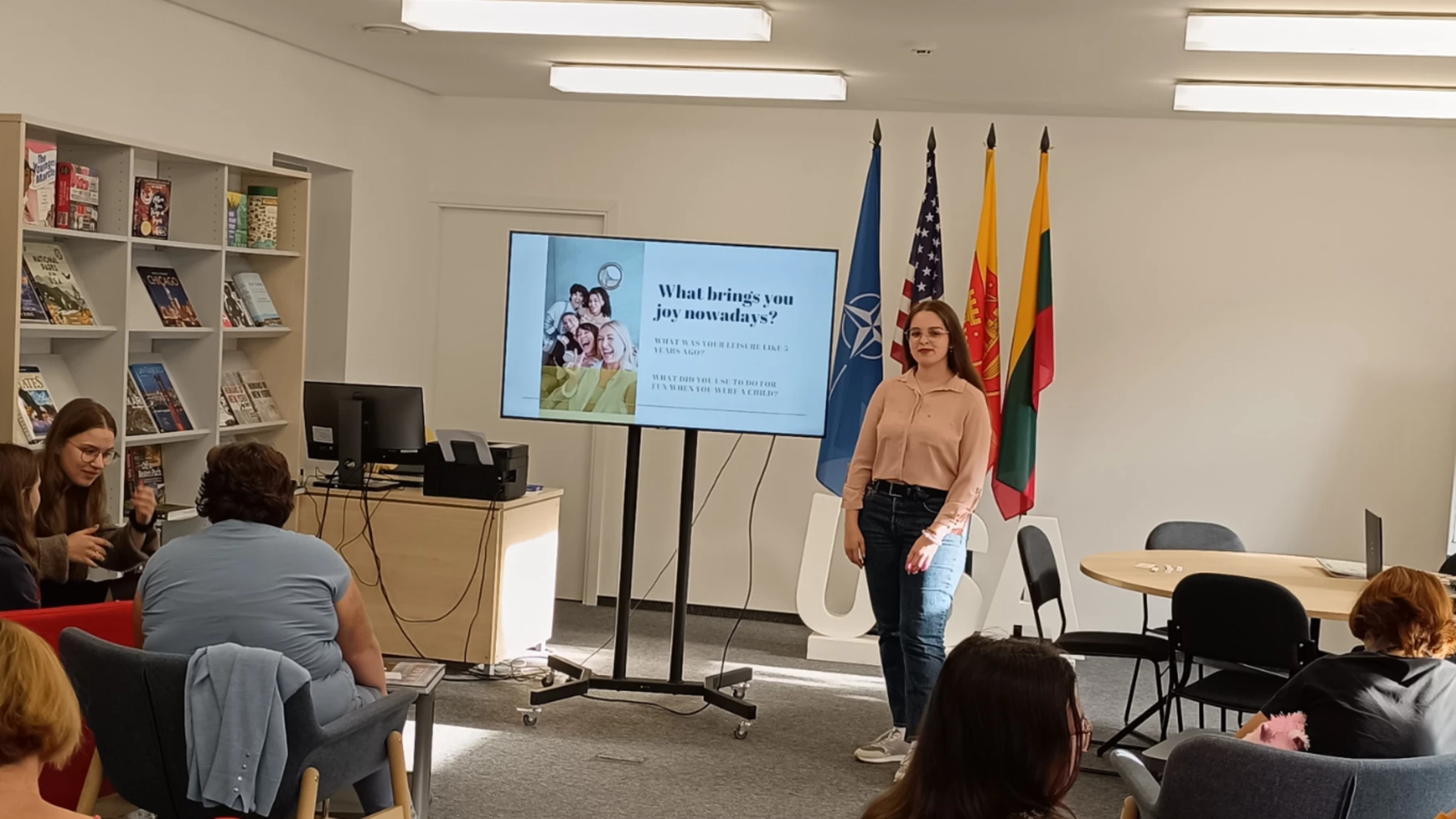
Connect with Hasan and Kateryna
Stay up to date with the latest news from Alef Initiative on their website.
Connect with Hasan on LinkedIn.
Email Hasan: [email protected]
Connect with Kateryna on LinkedIn.
Email Kateryna: [email protected]
